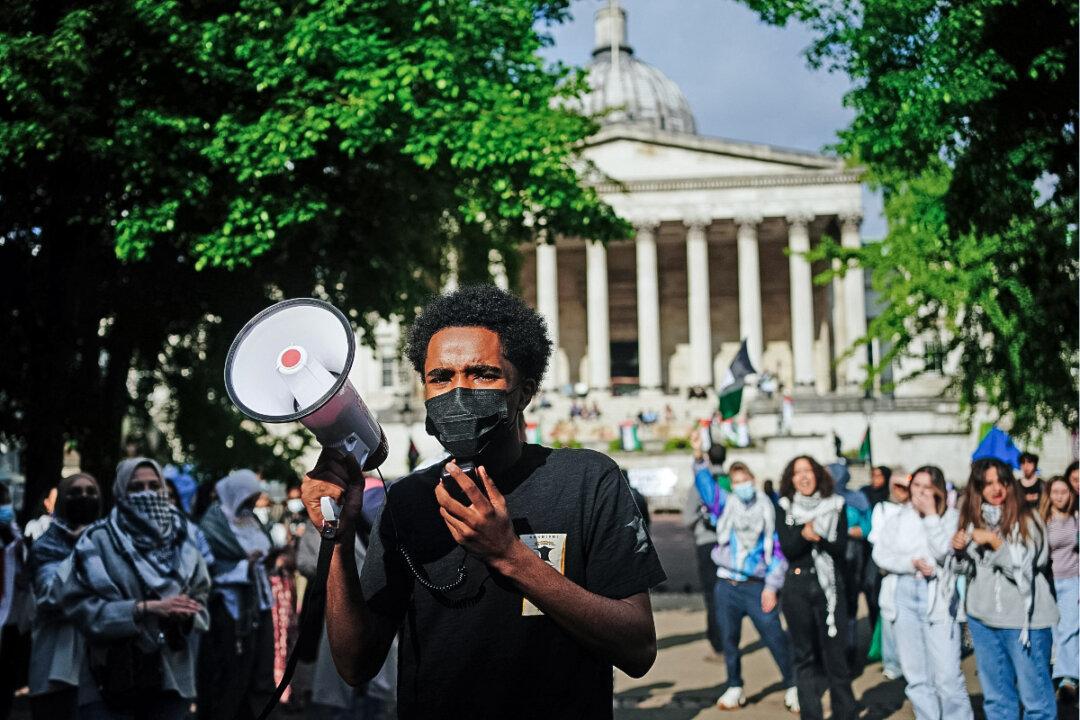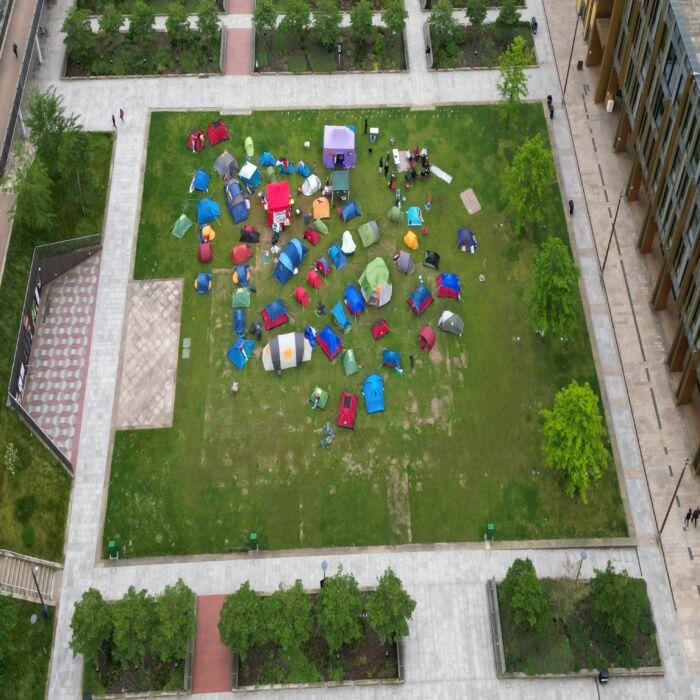University College London (UCL) has won a High Court order to take back control of parts of its campus which had been occupied by pro-Palestinian protest camps since May.
UCL had taken legal action over the “unauthorised occupational encampment” on its main estate, arguing that activists were protesting on private property.
Judge Francesca Kaye granted UCL the order at a hearing on Tuesday, concluding that the protesters had “no real prospect” of proving that an order would interfere with their human rights or that the university had acted in a discriminatory way.
The court had heard that the protest began on May 2 with 12 tents, before expanding into an encampment that at its peak involved 52 tents and around 50 activists.
Protests at campuses erupted following Israel launching military action against Hamas terrorists in the Gaza Strip in response to the deadly attacks against Israel on Oct. 7, 2023.
Preventing Disruption
The court heard that the institution had sought the possession order to “prevent disruption” to its academic community.Katharine Holland, KC, representing UCL, said in written arguments that the university had identified “escalating incidents and disruption” associated with the encampments, with UCL expressing concern about its ability to use the main quad for events—particularly how it was going to host freshers’ week for new students in September.
The written arguments said that the “aim is to protect the claimant’s right to possession of its own land and enable it to carry on the activities of the university and prevent disruption to other members of the university’s community.”
“The encampment concerns current events in the Gaza Strip and UCL’s alleged complicity in Israel’s role in that conflict,” it said.
Pressured to Surrender to Protesters’ Demands
Furthermore, she argued that the protest could not be characterised as the right to protest or an expression of free speech as it excluded the university from the “rightful possession of property” and that the action sought to pressure UCL to “surrender to its demands.”Initially, UCL had been unable to identify protesters on their campus, although students Shaun Boodram and Kais Al-Kaisi were later identified as defendants.
Barrister Audrey Cherryl Mogan, representing Boodram and Al-Kaisi, confirmed on Tuesday that both her clients were withdrawing their defence to the possession order bid.
According to UCL lawyers, the two students had previously claimed that the university’s attempts to take back control of their property was “unlawful” and discriminated against their race, religion, and beliefs.
Universities Granted Possession Orders
The first British institution to evict protesting students from pro-Palestinian encampments was the London School of Economics, which, in June, had secured a Central London County Court order banning encampments in one of its buildings after students protesting in support of Palestinians slept in its atrium for more than a month.Activists had claimed that their rights to free speech and assembly would be infringed if they were forced to leave, but High Court judge Mr. Justice Johnson ruled in July that they had “no real prospect” of showing their evictions would be incompatible with their human rights.
Protesters at Nottingham had demanded the university provide bursaries for Palestinian students and disclose its links with arms manufacturers.
Similarly, activists at Birmingham had said the university should apologise “for the university’s delay in condemning Israel’s genocide in Gaza” and for its “partnerships with arms manufacturers, linked to Israel.”







